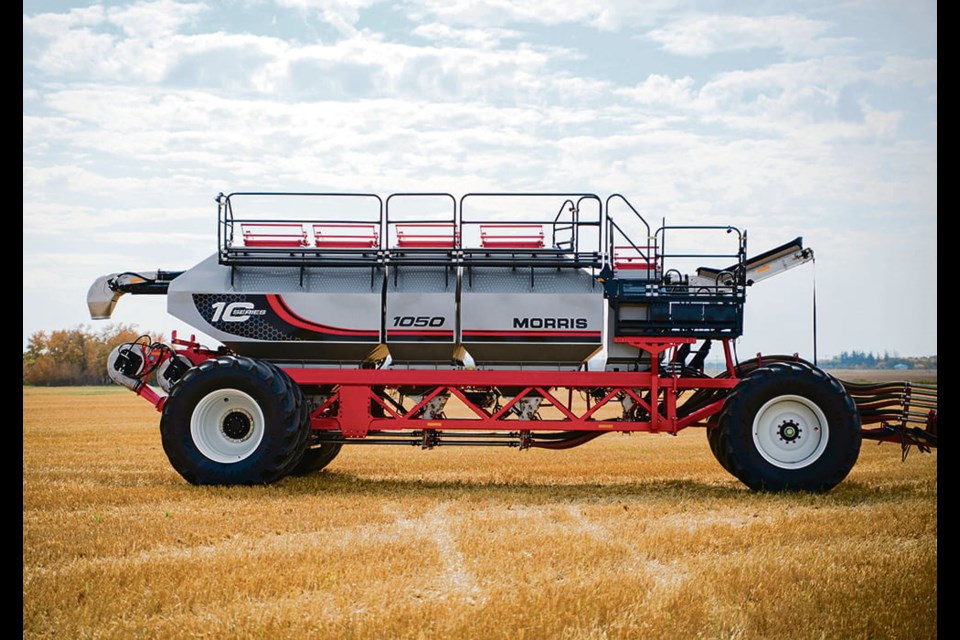WESTERN PRODUCER — As Morris Equipment and Rite Way Manufacturing announced they will merge together under a new parent company called Superior Farms Equipment, they also introduced the first new product to be released under that company structure, the Morris 10 Series air cart.
“It’s kind of an evolution,” says Garth Massie, Canadian sales and marketing manager at Morris.
“We had the 9 Series introduced in 2013. We’ve been working behind the scenes on this cart for a while.”
The new 10 Series carts, which will be available as the 660, 820 and 1050, have been undergoing field trials and farmer evaluations for a few seasons.
“We’ve been taking it slower on staged releases, really trying to debug this machine before we go full tilt with the production of it,” says Massie.
“We’re introducing three four-tank models. One of the things you’ll notice when you first walk up to it is they are individual tanks on scales. I think it’s in tune with the way the market has gone and what farmers really want in air carts now.
“We’ve designed the tank proportions to try and maximize the number of acres per fill. We have a small tank that is used for granular inoculant or canola. After some testing, the farmers said if you could make that a bit bigger, that would be great. It’s not always completely empty when we go to fill.”
So the additional small tank size has been increased from 50 to 80 bushels on the final production models.
“We call it the optimizer tank because it seems to help stretch the arches per fill,” he adds.
The 660 and 820 will be available in both tow-behind and tow-between configurations. At the moment, though, the 1050 is only being built as a tow-behind tank.
“You may see us over time introduce that as a tow-between model as well,” says Massie.
“We’re doing a bit more testing and proofing on that.”
The carts will ride only on wheels. Tracks won’t be an option.
“We’ve moved in the direction of larger rims and tires in order to get low inflation pressures and reduce compaction that way,” Massie adds.
The new carts will also get a significantly redesigned metering system. The previous 9 Series used hydraulics to control each section on the tank meters. The 10 Series will use a separate maintenance-free electric drive motor to run each section individually.
“The metering system is all new,” says Massie.
“Before, our sectional control system was hydraulically driven and there were gear clusters with a hydraulic cylinder that actuated them. Now we’ve gone to electric motors, so there’s a motor for each section. We’ll go up to 10 sections. So there is an electric motor that drives each section on each tank. So you could have up to 40 different motors on a cart.”
For loading, the 10 Series will use a new conveyor design built by partner company Convey-All, which Massie says has demonstrated it can load up to 108 bu. of wheat per minute during field trials.
Many of the design changes on the new carts, such as the new conveyor, were intended to reduce the amount of down time, which Massie says was a key focus for engineers when creating the 10 Series.
“At Morris there was a focus at looking at how do we minimize the amount of time the drill isn’t running up and down the fields actually seeding, reducing down time.”
The company produced a limited production run of 10 Series drills this year and has now fully opened up orders for delivery in time for the 2025 seeding season.




